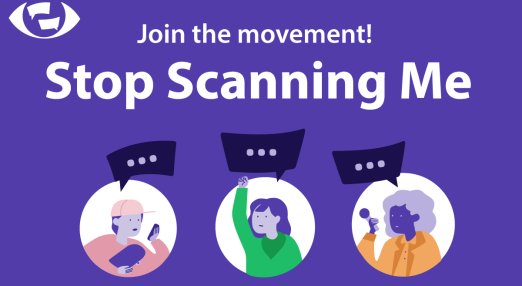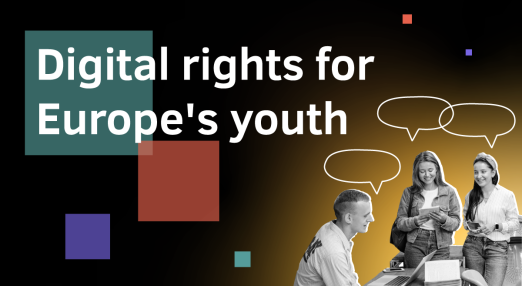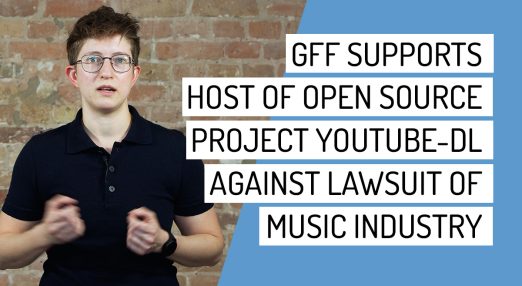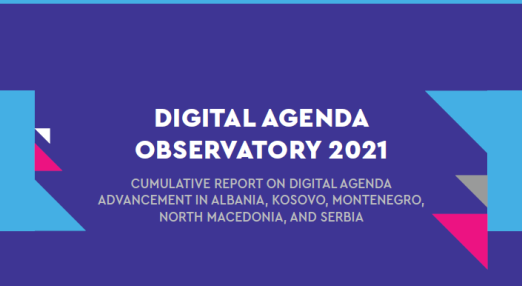EdTech needs schooling
It is vital that the introduction of technology to the classroom is accompanied by appropriate and robust human rights safeguards to ensure that every child around the world can safely access an education, without giving up their right to privacy or becoming hostages to a future of data exploitation. Read why EdTech needs schooling to ensure the safety of the children they are responsible for.
Filter resources
-

EdTech needs schooling
It is vital that the introduction of technology to the classroom is accompanied by appropriate and robust human rights safeguards to ensure that every child around the world can safely access an education, without giving up their right to privacy or becoming hostages to a future of data exploitation. Read why EdTech needs schooling to ensure the safety of the children they are responsible for.
Read more
-

Network fee: the new attack on the open Internet
A major attack on net neutrality is currently underway at the EU level using the slogan "Fair Share". Under this term, the telecommunications industry wants to massively increase its profits. EDRi and epicenter.works have published a joint paper, supported by a total of nine NGOs, which summarises all the myths of the telecom industry on this topic and counter them with facts and arguments. Read more about paper in this article.
Read more
-

People working in the Czech media do not trust technology companies, they are also concerned about artificial intelligence decision-making
These findings come as a result of a survey conducted in the summer of 2022 as part of the Promoting human rights in the digital era project. The digital legal organisation and an EDRi member in the Czech Republic IuRe (Iuridicum Remedium) also took part.
Read more
-

Position paper: A safe internet for all – Upholding private and secure communications
Despite the importance of its goals, the European Union’s proposed Child Sexual Abuse Regulation (CSAR) will not only fail in its aims to protect young people, but it will also even harm those it wants to protect.
Read more
-

“You’ll find it on the internet.” How digitalisation impacts the lives of people whose voices often go unheard
As a rule, government and official websites make no allowances for users with special needs. At the same time, even some IT specialists prefer to use paper as an alternative. These were among the findings of a unique piece of research which was part of the Promoting Human Rights in the Digital Era project.
Read more
-

Digital rights for Europe’s youth
The biggest youth platform in the world is joining the Platform Power Coalition for a Digital Services Act that empowers young people. European Youth Forum will bring youth voices to the coalition, vindicating that digital rights are youth rights. Young people should be able to enjoy their digital environment without fearing privacy violations, discrimination or manipulation. Here is what you need to know about this alliance.
Read more
-

The DSA should pave the way for systemic change
Today, 5 July, is a victorious day for human rights online as we embark on the next stage in our journey – real alternatives to the currently dominant surveillance business model. The European Parliament’s approval of the Digital Services Act (DSA) will bring many opportunities to limit the huge power Big Tech companies like Google, Meta (Facebook) and Amazon have over people and democracies. However, this regulation is only the first step in ensuring people’s rights online are protected, more work is needed for a better internet. Now, it is imperative that we see strong enforcement by regulatory authorities that will ensure the high human rights standards the new rules promise.
Read more
-

Consumer and digital groups in Europe and the U.S. call for a full ban on surveillance-based advertising
On 1 June, the Transatlantic Consumer Dialogue (TACD), that EDRi is part of, published a policy resolution on banning surveillance-based advertising. The invasive practices of collecting, sharing, and processing of individual data to deliver personalized advertising, has become the primary business model in the online advertising space. Surveillance advertising is promoted by the world’s largest technology companies, like Meta (Facebook) or Alphabet (Google), and is a key driver behind the spread of misinformation, undermining democratic discourse, economic and political equity, marketplace competition, privacy, public health, and basic consumer protections.
Read more
-

Copyright: European Court of Justice strictly limits the use of upload filters
“Today’s ruling sets an important precedent for the protection of freedom of expression online. Nevertheless, it does not go far enough. The European Court of Justice does not completely rule out the use of upload filters to enforce copyright on online platforms. At least, however, the court confirms what civil society has been emphasizing for years: upload filters are unable to reliably distinguish between copyright infringements and legitimate forms of free expression such as parodies or quotations. It is therefore right that the highest court limits the use of upload filters under Article 17 of the EU Copyright Directive to uploads that constitute manifest infringements, such as uploads of entire movies.”
Read more
-

Promoting human rights in the digital era
Digital technologies are part of everyday life, but we don’t know much about how they impact our rights. A Czech-Norwegian project aims to change this.
Read more
-

Music industry against Uberspace: Video downloads are not copyright infringements!
EDRi's member Gesellschaft für Freiheitsrechte fights against the music industry's attempts to put a digital lock on open source software, that enable media, human rights defenders, archivists and many others to access essential content.
Read more
-

Digital Agenda’s report on digital advancement in the Western Balkans
Digitalisation in all spheres and for all social groups may be an effective mechanism for improving the well-being of citizens. This means improving the digital efficiency of institutions, organisations and other social entities.
Read more
